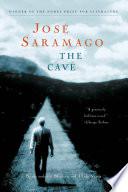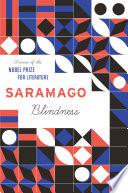Works
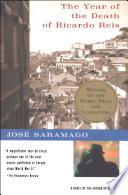
The Year of the Death of Ricardo Reis
José Saramago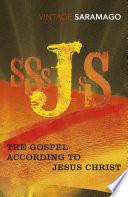
The Gospel According to Jesus Christ
José Saramago
Baltasar and Blimunda
José Saramago
The Double
José Saramago
Death with Interruptions
José Saramago
The Stone Raft
José Saramago
Raised from the Ground
José Saramago
Cain
José Saramago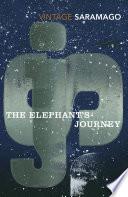
The Elephant's Journey
José SaramagoFamous José Saramago Quotes
The Stone Raft (1994)
“Each part in itself constitutes the whole to which it belongs.”
Source: The Cave (2000), p. 68 (Vintage 2003)
“Inside us there is something that has no name, that something is what we are.”
Dentro de nós há uma coisa que não tem nome, essa coisa é o que somos.
Source: Blindness (1995), p. 276
“God is the silence of the universe, and man is the cry that gives meaning to that silence.”
Deus é o silêncio do universo, e o homem o grito que dá um sentido a esse silêncio.
Lanzarote Notebooks (1990), quoted in The Notebook, entry for 9 October 2008.
José Saramago Quotes about the world
Intervention in the World Social Forum in Porto Alegre, February of 1992; quoted in Las leyes antidiscriminatorias en el Mercosur: Impactos de la III conferencia mundial contra el racismo, la discriminación racial, la xenofobia y las formas conexas de intolerancia, Durban, 2001: informe sobre el seminario realizado en Montevideo, 29 y 30 de abril de 2002. Published by Organizaciones Mundo Afro, 2002 163 pages.
Quoted in Evans, 2002, p. 13, as reported in Fundamentals of action research, Vol. I (2005), p. 305.
Source: The Year of the Death of Ricardo Reis (1993), p. 117
ÉPOCA Interview (in Portuguese) http://revistaepoca.globo.com/Epoca/0,6993,EPT1061569-1666-2,00.html, São Paulo, 2005.
José Saramago Quotes about time
Source: Death with Interruptions (2005), p. 172
José Saramago: Trending quotes
“The possibility of the impossible, dreams and illusions, are the subject of my novels.”
Introduction
The Stone Raft (1994)
“No one has committed so much sin in his life that he deserves to die twice.”
Original: (pt) Ninguém na vida teve tantos pecados que mereça morrer duas vezes.
Source: The Gospel According to Jesus Christ (1991), p. 362
José Saramago Quotes
Source: The Cave (2000), p. 20 (Vintage 2003)
“Men, forgive Him, for He knows not what He has done.”
Source: The Gospel According to Jesus Christ (1991), p. 347; Jesus' last words from the cross.
Context: Jesus then realized he had been brought here under false pretences, as the lamb is led to sacrifice and that his life had been planned for death since the very beginning. Remembering the river of blood and suffering that would flow from his side and flood the entire earth, he called out to the open sky where God could be seen smiling, Men, forgive Him, for He knows not what He has done.
“Besides the conversation of women, it is dreams that keep the world in orbit.”
Source: Baltasar and Blimunda (1982), p. 107
Context: Besides the conversation of women, it is dreams that keep the world in orbit. But dreams also form a diadem of moons, therefore the sky is that splendour inside a man's head, if his head is not, in fact, his own unique sky.
“Forgive me if what has seemed little to you, to me is all.”
Nobel Lecture (1998)
Source: The Cave (2000), p. 29 (Vintage 2003)
The woman in the ground floor flat; p. 48
All the Names (1997)
Quoted in New African (IC Magazines Limited, 2003), p. 25.
“Lord knows why they depict death with wings when death is everywhere.”
Source: The Cave (2000), p. 112 (Vintage 2003)
“This is the stuff we're made of, half indifference and half malice.”
Source: Blindness (1995), p. 32
Referring to his grandfather, Jerónimo Meirinho.
Nobel Lecture (1998)
“Earthenware is like people, it needs to be well treated.”
Source: The Cave (2000), p. 21 (Vintage 2003)
Le religioni, tutte, senza eccezione, non serviranno mai per avvicinare e riconciliare gli uomini e, al contrario, sono state e continuano a essere causa di sofferenze inenarrabili, di stragi, di mostruose violenze fisiche e spirituali che costituiscono uno dei più tenebrosi capitoli della misera storia umana.
La Repubblica http://www.repubblica.it/online/mondo/saramago/saramago/saramago.html (20 September 2001)
Todo o romance é isso, desespero, intento frustrado de que o passado não seja coisa definitivamente perdida. Só não se acabou ainda de averiguar se é o romance que impede o homem de esquecer-se ou se é a impossibilidade do esquecimento que o leva a escrever romances.
Source: The History of the Siege of Lisbon (1989), p. 47
Source: Raised from the Ground (1980), pp. 172–174
“Even the strongest spirits have the moments of irresistible weakness”
Source: The Cave (2000), p. 15 (Vintage 2003)
Source: Blindness (1995), p. 2
Nobel Lecture (1998)
“Where do begin, he asked, Where you always have to begin, at the beginning”
Source: The Cave (2000), p. 53 (Vintage 2003)
Interview to the newspaper "O Globo" (at the time of the release of his latest book, Cain), in 2009.
Source: The Year of the Death of Ricardo Reis (1993), p. 108
Intoxicados mentalmente pela idéia messiânica de um Grande Israel que torne por fim realidade os sonhos expansionistas do sionismo mais radical, contaminados pela monstruosa e arraigada "certeza" de que neste mundo catastrófico e absurdo existe um povo eleito por Deus e, portanto, estão automaticamente justificadas e autorizadas, em nome dos horrores do passado e dos medos de hoje, todas as ações nascidas de um racismo obsessivo, psicológica e patologicamente exclusivista, educados e formados na idéia de que qualquer sofrimento que tenham infligido, inflijam ou venham a infligir aos demais, em especial aos palestinos, sempre será inferior ao que eles padeceram no Holocausto, os judeus arranham sem cessar sua própria ferida para que não deixe de sangrar, para torná-la incurável, e mostram-na ao mundo como se fosse uma bandeira.
Interview with El País (2002); cited in Princípios (Editora Anita Garibaldi, 2002), p. 88; English translation taken from Phillips The World Turned Upside Down (2010), p. 207.
Quoted in News Brief http://www.jta.org/2003/10/15/archive/nobel-laureate-jose-saramago-said-the-jewish-people, Jewish Telegraphic Agency, October 15, 2003.
O filho de José e de Maria nasceu como todos os filhos dos homens, sujo de sangue de sua mãe, viscoso das suas mucosidades e sofrendo em silêncio. Chorou porque o fizeram chorar, e chorará por esse mesmo e único motivo.
Source: The Gospel According to Jesus Christ (1991), p. 58
“Death is the inventor of God.”
Interview with "El País", 2009. http://elpais.com/diario/2009/10/17/babelia/1255738349_850215.html
“Words were not given to man in order to conceal his thoughts.”
Source: The Cave (2000), p. 124
“The following day, no one died.”
No dia seguinte, ninguém morreu.
Source: Death with Interruptions (2005), p. 1
“Creating is always so much more stimulating than destroying.”
Source: The Cave (2000), p. 107 (Vintage 2003)
“The difficult thing isn't living with other people, it's understanding them.”
Source: Blindness (1995), p. 284
“[…], perhaps that's how you learn, by answering questions.”
Source: All the Names (1997), p. 48
Source: The Cave (2000), p. 117(vintage 2003)
“a waiting, stagnant darkness, thick and silent as the ocean deeps”
uma escuridão parada à espera, espessa e silenciosa como o fundo do mar
Source: All the Names (1997), p. 107
Eu, no fundo, não invento nada. Sou apenas alguém que se limita a levantar uma pedra e a pôr à vista o que está por baixo. Não é minha culpa se de vez em quando me saem monstros.
Quoted in the article Literatura: Saramago doutor honoris causa da Universidade Autónoma Madrid. Published by Rádio Mirasado. (March 15th, 2007)
“Now we live in the empire of oil and money — the rest is disguise.”
ÉPOCA Interview (in Portuguese) http://revistaepoca.globo.com/Epoca/0,6993,EPT1061569-1666-2,00.html, São Paulo, 2005.
“That night the blind man dreamt that he was blind.”
Source: Blindness (1995), p. 15
A propósito, não resistiremos a recordar que a morte, por si mesma, sozinha, sem qualquer ajuda externa, sempre matou muito menos que o homem.
Source: Death with Interruptions (2005), p. 117
“The only time we can talk about death is while we’re alive, not afterwards.”
Source: The Cave (2000), p. 22 (Vintage 2003)
Source: The Cave (2000), p. 60 (Vintage 2003)
“Don’t quibble with the king over pears, let him eat the ripe ones and give you the green ones.”
Source: The Cave (2000), p. 78 (Vintage 2003)
“The worst thing about death is that you once were, and now you are not.”
O pior da morte é que antes estavas e agora não estás.
Interview, O Saramago que conheço http://www.portal730.com.br/wellington-borges/o-saramago-que-conheco, Portal 730, 2010.
O destino é a ordem suprema, a que os próprios deuses aspiram, E os homens, que papel vem a ser o dos homens, Perturbar a ordem, corrigir o destino, Para melhor, Para melhor ou para pior, tanto faz, o que é preciso é impedir que o destino seja destino.
Source: The Year of the Death of Ricardo Reis (1993), p. 288
Interview to the newspaper "O Globo", 2009.
Nobel Banquet Speech
The Double (2002)
ÉPOCA Interview (in Portuguese) http://revistaepoca.globo.com/Epoca/0,6993,EPT1061569-1666-2,00.html, São Paulo, 2005.
Interview with Katherine Vaz, José Saramago http://bombsite.com/issues/999/articles/3565, BOMB Magazine, June 2001.
Source: The Cave (2000), p. 73 (Vintage 2003)
Source: All the Names (1997), p. 181

